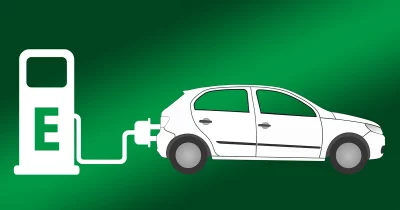Electric cars are becoming increasingly popular as a more environmentally-friendly and cost-effective alternative to traditional petrol or diesel vehicles. As a result, many people are wondering how tax applies to electric cars. The Australian Taxation Office (ATO) has released updated information on electric vehicles just in time for the Fringe Benefits Tax (FBT) year that began on April 1.
Under the new regulations, employers can potentially qualify for an FBT exemption when providing employees with the use of a zero or low emissions vehicle, regardless of whether it is through a salary sacrifice arrangement or not. The exemption applies if the value of the car is below the luxury car tax threshold ($84,916 for 2022-23) for fuel-efficient vehicles when it was initially purchased, and if the vehicle is both first held and used on or after July 1, 2022. The FBT exemption covers associated benefits, such as registration, insurance, repairs, maintenance, and fuel, but not the charging stations.
Employees are still required to report the value of the fringe benefit on their income statement and tax return, which is taken into account when determining their adjusted taxable income for various areas, such as the Medicare levy surcharge, private health insurance rebate, employee share scheme reduction, and certain social security payments. The FBT exemption does not apply to sole traders, partners of a partnership, or shareholders of a company, unless the benefit is provided in their capacity as an employee or director of the entity.
If an employer provides a charging unit to an employee, FBT could be triggered. Nevertheless, employees can potentially claim depreciation deductions if they purchase a home charging unit for income-producing purposes.
In addition, the ATO has set a running cost rate of 4.20 cents per km for EVs provided to an employee from 1 April 2022 for FBT purpose and 1 July 2022 for income tax purpose. Like the other actual cost method to the normal motor vehicle, you can use actual electricity costs for tax claiming too.
In summary, if your employer provides you with the use of a zero or low emissions vehicle, there is an FBT exemption that may apply. However, this exemption does not extend to home charging units. The cost of electricity can be calculated using the ATO’s set rate or actual costs if you can calculate them accurately. It is important to keep in mind that the value of the fringe benefit is still taken into account when working out the reportable fringe benefits of the employee.
Should you please have any question in regards to above, please feel free to contact our friendly team in Pitt Martin Tax at 0292213345 our info@pittmartingroup.com.au.
The material and contents provided in this publication are informative in nature only. It is not intended to be advice and you should not act specifically on the basis of this information alone. If expert assistance is required, professional advice should be obtained.

Experienced Tax Accountant and Business Advisor with a demonstrated history of working in the accounting industry. Skilled in Tax, Accounting, Business Advisory and SMSF. Strong entrepreneurship professional with qualification Master of Professional Accounting, CPA Public Practice, Registered Tax Agent, Registered ASIC Agent, NSW Law Society External Examiner, Trust Account Auditor and Diploma of Finanical Planning. Specialised in SME, tax planning and international tax, he helped client save ample money and create wealth.

